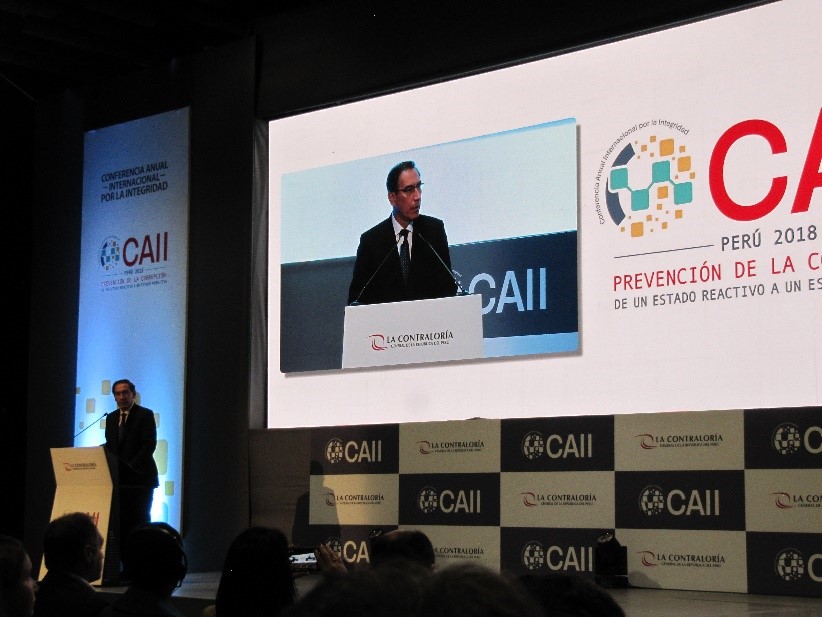IIEP participates in the Annual International Conference for Integrity (CAII) held in Peru

Preventing corruption: From a reactive State to a proactive State
CAII 2018 focused on the following topic: “Preventing corruption: From a reactive state to a proactive State”. Conference organizers wanted to stimulate “debate over innovative and increasingly efficient mechanisms for the prevention of official misconduct and corruption, with the goal of generating public value”, with particular attention on citizens and the promotion of a culture of integrity within public entities.
More broadly, the objective of the conference was to hear about best practices and create a space for the exchange of knowledge among representatives of academia, public officials, the media, the private sector, civil society, and experts in the field, with the ultimate goal of developing new and increasingly innovative strategies in the fight against corruption.
Education for integrity: Training agents of change
In this context, Muriel Poisson, Task Manager of IIEP’s programme on Ethics and corruption in education, was invited to present on the subject “Education for integrity: Training agents of change”. During her intervention, she highlighted
the importance of imparting knowledge about rights and duties, but also of fostering attitudes that value integrity, as well as skills that enable individuals to confront ethical dilemmas, identify conflicts of interest and report corruption.
Drawing from examples across the globe, she also showed the need to promote an ethical learning environment by working with various groups of stakeholders, including:
- ministries of education, by helping them build their capacities to detect risks and address them (e.g. Honduras);
- teachers and professors, by involving them actively, for instance, in the development and implementation of codes of conduct (e.g. Panama);
- students and youths, by guiding them in the design of university integrity or transparency indexes (e.g. Colombia and Peru) or encouraging them to participate in anti-corruption networks or clubs (e.g. Thailand).
Her presentation was followed by a lively discussion on how to make codes of conduct useful for the teaching profession, and how youth can be mobilised around anti-corruption issues in a productive way.
Other panellists included the Anti-Corruption and External Relationships Director of the Puerto Rico Supreme Audit Institution, and the Director of the Institute of Ethics and Development, Universidad Antonio Ruiz de Montoya.
The whole session was recorded and is available here.
High-level representation from all over Latin America
The majority of the conference's 500 participants were directors and staff of comptroller offices from the Latin American region. A number of representatives from civil society and the media were also present.

H.E. Martin Vizcarra Cornejo President of the Republic of Peru, opening the CAII
The debates were opened by H.E. Martin Vizcarra Cornejo, President of the Republic of Peru, and by Mr Nelson Shack Yalta, Comptroller General of the Republic of Peru. They were closed by H.E. Daniel Salaverry Villa, President of the Congress of Peru. The Peruvian Minister of Education also participated and signed the “Commitment for Training Citizens of the Bicentenary”.

